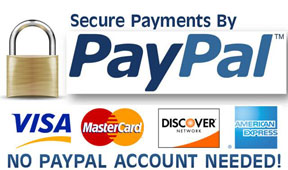Buying A Flat With Short Lease – What Should I Know
Author: adminIf you’re considering buying a flat with a short lease, it’s important you know what you’re dealing with and what implications it may have. We’ve put together a simple guide to help you get to grips with short leases, including how this may affect you getting a mortgage and what’s involved in applying for a new lease.
A short lease is normally found when the property / flat you are purchasing is sitting on someone else’s land (the freeholder). The short lease refers to the short period of time left to use to home and the length of this can vary, but in essence, the shorter the lease period, the less the property is worth. Most residential leases used to be around 99 years long but many modern flats carry a lease of 125 years or more, as do ex-local authority flats.
There are several Graphs of Relativity which show the depreciation of a property value against the shorter lease period, with anything below 99 years having a lower value. In most cases, a flat that comes with a lease of 99 years or more will be valued at around 99-100% of the price that the freehold reversion (the freeholders interest) would be on the same flat. And, as the lease gets shorter, this relativity will decrease. There are variations on this, but should you be looking at a lease period of around 70 years, the value of the flat will be 91-92%, which would then reduce to 75% on a 50-year lease.
Getting a Mortgage on a Short Lease Flat
Problems arise with short lease properties when the potential buyer tries to raise a mortgage to purchase it. A lot of lenders can be reluctant to provide a mortgage on a short lease flat, particularly when the lease period is less than 70 or 80 years because of how much the property price will depreciate once the lease falls below 70 years.
You could consider buying the property with cash, or opting for a non-mainstream lender, but this could cost more and you’re still faced with the issues of a decreasing property value. Most homeowners won’t let their lease fall below 70 years due to the effect this has on the value of the property and will apply for a lease extension.
Alternatively, some mortgage companies will lend a mortgage on the proviso that the vendor will apply for an extension of their lease (this is only possible if they have lived at the property for more than 2 years) and that they will assign the benefit of the notice to the purchaser (under section 42 of The Leasehold Reform, Housing and Urban Development Act 1993). This will have to take place at the same time, or before, the lease is legally allocated to the purchaser.
If this isn’t done before you buy the flat, you will have to wait 2 years before you have the right to apply for a new lease in your own name.
The Cost of Lease Extensions
If you are looking at extending the lease on a flat you are purchasing and will have to wait 2 years before you can do this, it is highly recommended to get a specialist valuation before proceeding as it is likely that the cost of an extension will increase over the 2 years you have to wait. This is particularly crucial if the lease is just above 80 years as it is at this point that the ‘marriage value’ will come into play and can make lease extension much more expensive.
Applying for a new lease will give you an additional 90 years at the end of the existing lease and will not include the ground rent that may be applicable to the current lease. To achieve this lease extension, the landlord (freeholder) will expect a premium payment in order to grant the lease and this will have to reflect the decrease in value of the freeholder’s interest in the property once the lease has been approved. There are many variations as to how this is calculated, which is why it is advised to get a professional valuation.
Furthermore, as the new lease won’t include ground rent, the freeholder will also need compensating for this. The normal ground rent charges are around £50 – £100 a year and can be fixed or can increase over the lease period, but as this is lost with the new lease, a lump sum of lost income will be calculated that will need paying to the landlord. This will be calculated in a way that will ensure that the amount paid will provide an income of something like £100 a year for the next 75 years. It also has to be assumed that this amount will attract interest and will, therefore, generate growth to provide an annual income for the freeholder.
And, if the lease you are trying to extend is currently at a period of 80 years or less, you will also be required to pay a 50% share of the ‘marriage value’ too.
As you can see there are many elements to take into consideration if you’re thinking of purchasing a flat with a short lease, and it is always advised to get professional opinions before doing so. Furthermore, if you are the owner of a flat with a short lease, regardless of whether you’re thinking of selling in the future, you should extend your lease when it gets to a period of 70 years on your current one. If you can do this at 80 years, that’s even better because after this point ‘marriage value’ costs can mean the price of increasing your lease can be higher.
See how long you’ve got left on your lease so you aren’t left with any additional charges when renewing.


